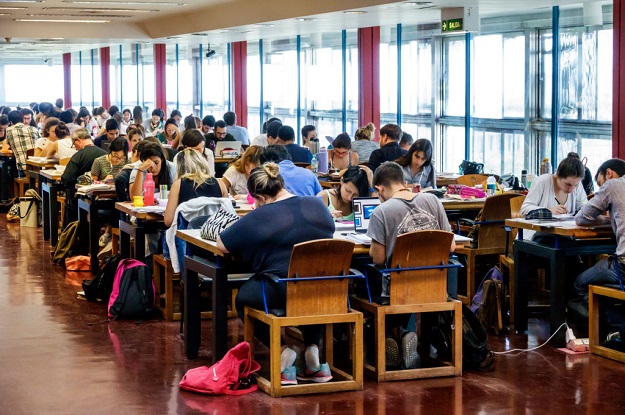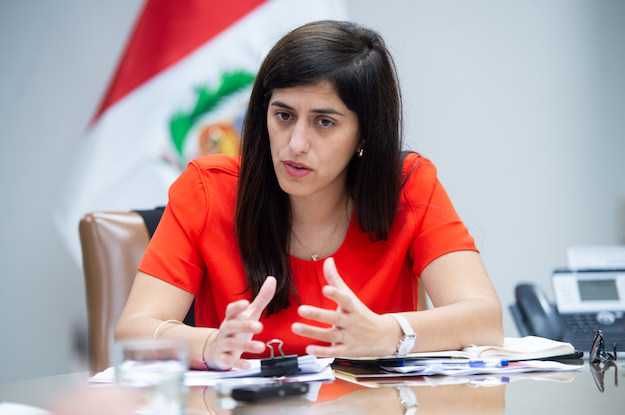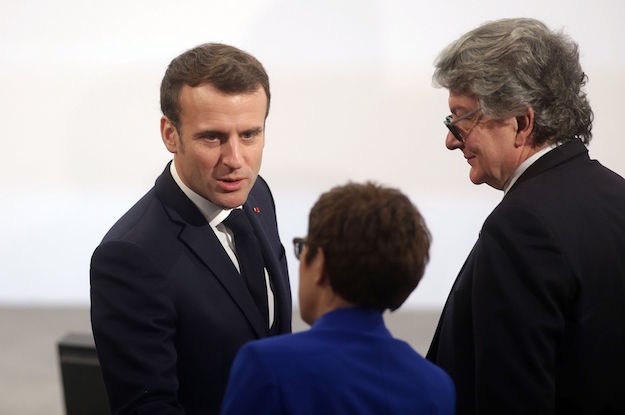In a first for the G20 in its nearly two-decade history, education ministers from G20 member countries will meet in Mendoza on Wednesday to discuss global education trends and policy challenges. The fact that education ministers will have a seat at the table under Argentina’s G20 presidency is an overdue recognition that education is inseparable from economic growth, trade and development.
Adding to the meeting’s significance will be the presence of some the world’s leading education-focused civil society organizations. This group will present the G20 ministers, including U.S. Education Secretary Betsy Devos, with papers on critical education issues, such as 21st-century labor skills and the role of social media in education.
If taken advantage of, the meeting promises to be a momentous opportunity to better the futures of young people in G20 countries and around the world.
The challenges at hand demand a concerted strategy. In 2018, it is a scandal that over 260 million children are out of school globally, and of the 650 million primary school-age children in school, some 250 million are not learning the basics. To meet the UN’s Sustainable Development Goal of quality education for all, we will need to recruit 69 million teachers by 2030.
Latin America merits particular urgency. Yes, there have been some successes: The region has made huge leaps forward in the number of children enrolled in schools. Today, primary school attendance is over 90 percent, according to the World Bank. And since 1970, the rate of secondary school enrolment has more than tripled, surpassing 94 percent in 2016.
But in 2018, young people in the region are simply not learning enough when they are in the classroom. With a few notable exceptions, Latin American countries languish near the bottom of the PISA education rankings for science, math and reading – and many are outperformed by other countries at a similar level of economic development.
That education ministers are meeting to address these problems is a vital step in the right direction. However, they should listen to the insights of civil society education experts who will be coming to Wednesday’s meeting with an agenda aimed at keeping fewer students from falling through the cracks.
On their list is a call for the G20 to invest in improved national data systems to track children who are both in and out of school. Hard data – organized by categories such as gender, age, ethnicity and migration status – is sorely lacking in many countries about where progress is being made, and where gaps in education provision remain. Another recommendation to the G20 borne from experience is their call for the voices of employers to be heard in curriculum design and teacher training. This could help tackle the huge number of young people who leave school without the skills they need to find a job.
The institutional knowledge among civil society, often acquired over decades and from on-the-ground experience, can benefit ministers who are often constrained in their mission by short electoral cycles. As a result, many barely have the time to make an impact before they move to other jobs. The continuity these civil society groups have builds unmatched expertise decade-on decade.
Such a long view is necessary: According to a Harvard Business Review analysis of 15 social-change movements – from polio eradication to the Fair Food Program – nearly 90 percent of historically successful social-change efforts were found to take more than 20 years.
Civil society organizations are invaluable because they have the practical knowledge to advise governments on what really works, and Wednesday’s meeting is a prime opportunity for them do so. As the chairs of the group of civil society representatives convening in Mendoza, we look forward to a productive meeting with the G20 education ministers. However, such meetings of education ministers should not be a once-a-decade occurrence. They should be a permanent fixture at the G20 and G7 every year. Next year, the presidencies of the G20 and G7 fall to Japan and France respectively. It would be welcome to see this format of discussion with education ministers continue.
—
Esteban Bullrich is a senator for the province of Buenos Aires and Argentina’s former minister of education. Vikas Pota is chairman of the Varkey Foundation. They are co-chairs of a new group of civil society organizations meeting alongside the G20 Education Ministers summit in Mendoza, Argentina.







